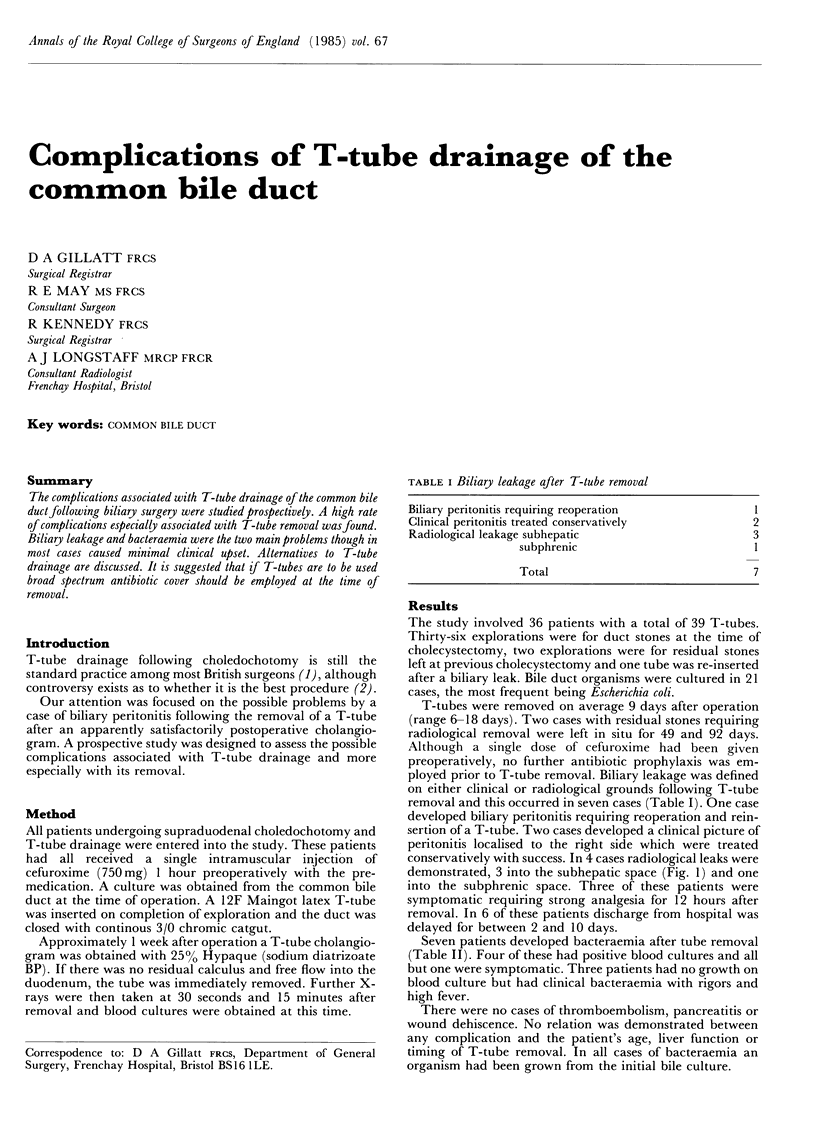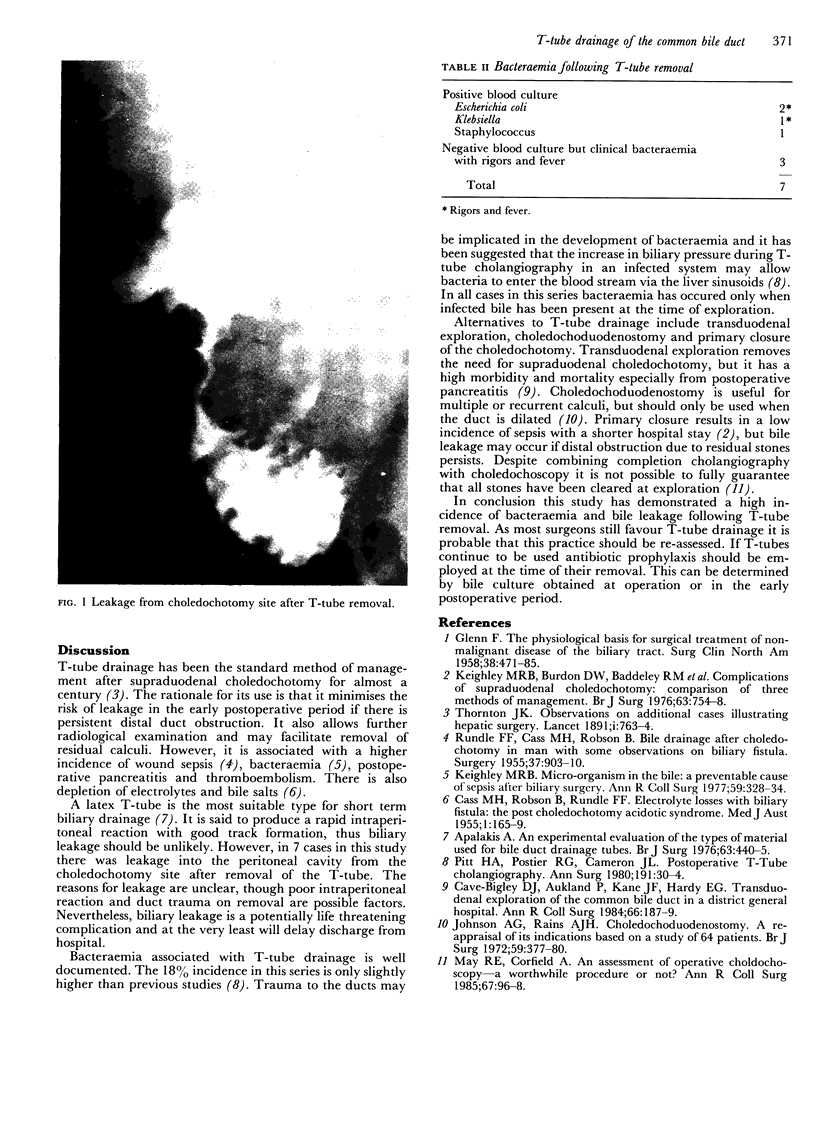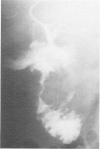Abstract
The complications associated with T-tube drainage of the common bile duct following biliary surgery were studied prospectively. A high rate of complications especially associated with T-tube removal was found. Biliary leakage and bacteraemia were the two main problems though in most cases caused minimal clinical upset. Alternatives to T-tube drainage are discussed. It is suggested that if T-tubes are to be used broad spectrum antibiotic cover should be employed at the time of removal.
Full text
PDF

Images in this article
Selected References
These references are in PubMed. This may not be the complete list of references from this article.
- Apalakis A. An experimental evaluation of the types of material used for bile duct drainage tubes. Br J Surg. 1976 Jun;63(6):440–445. doi: 10.1002/bjs.1800630608. [DOI] [PubMed] [Google Scholar]
- CASS M. H., ROBSON B., RUNDLE F. F. Electrolyte losses with biliary fistula: the post-choledochostomy acidotic syndrome. Med J Aust. 1955 Feb 5;42(1 6):165–169. [PubMed] [Google Scholar]
- Cave-Bigley D. J., Aukland P., Kane J. F., Hardy E. G. Transduodenal exploration of the common bile duct in a district general hospital. Ann R Coll Surg Engl. 1984 May;66(3):187–189. [PMC free article] [PubMed] [Google Scholar]
- Field E. S., Nicolaides A. N., Kakkar V. V., Crellin R. Q. Deep-vein thrombosis in patients with fractures of the femoral neck. Br J Surg. 1972 May;59(5):377–379. doi: 10.1002/bjs.1800590512. [DOI] [PubMed] [Google Scholar]
- GLENN F. The physiological basis for the surgical treatment of nonmalignant disease of the biliary tract. Surg Clin North Am. 1958 Apr;38(2):471–485. doi: 10.1016/s0039-6109(16)35439-1. [DOI] [PubMed] [Google Scholar]
- Keighley M. R., Burdon D. W., Baddeley R. M., Dorricott N. J., Oates G. D., Watts G. T., Alexander-Williams J. Complications of supraduodenal choledochotomy: a comparison of three methods of management. Br J Surg. 1976 Oct;63(10):754–758. doi: 10.1002/bjs.1800631007. [DOI] [PubMed] [Google Scholar]
- Keighley M. R. Micro-organisms in the bile. A preventable cause of sepsis after biliary surgery. Ann R Coll Surg Engl. 1977 Jul;59(4):328–334. [PMC free article] [PubMed] [Google Scholar]
- May R. E., Corfield A. An assessment of operative choledochoscopy--a worthwhile procedure or not? Ann R Coll Surg Engl. 1985 Mar;67(2):96–98. [PMC free article] [PubMed] [Google Scholar]
- Pitt H. A., Postier R. G., Cameron J. L. Postoperative T-tube cholangiography. Is antibiotic coverage necessary. Ann Surg. 1980 Jan;191(1):30–34. doi: 10.1097/00000658-198001000-00006. [DOI] [PMC free article] [PubMed] [Google Scholar]
- RUNDLE F. F., CASS M. H., ROBSON B., MIDDLETON M. Bile drainage after choledochostomy in man, with some observations on biliary fistula. Surgery. 1955 Jun;37(6):903–910. [PubMed] [Google Scholar]



